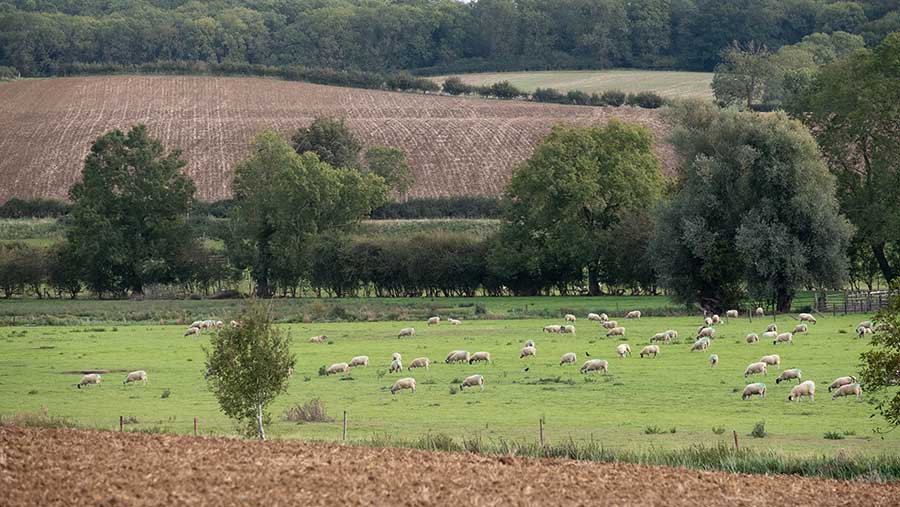Opinion: Messaging is crucial to securing farming’s future
 © Tim Scrivener
© Tim Scrivener Society is changing at pace, and it is time for farming to come up with a new forward-looking vision for itself.
This should not hark back to some halcyon past that never really existed, but should look forward to the opportunities that exist in the future.
For the farming sector, innovation, new technology and new thinking will allow the industry to adapt and change to meet consumers’ changing requirements, rather than trying to hang onto the status quo.
See also: Modern politicians need a dose of Deben
About the author

Brian Richardson is UK head of agriculture for Virgin Money.
Here he explains the need for coherent and balanced argument, to ensure the industry’s positive credentials meet the target audience.
I recently attended the Institute of Agricultural Management conference and had the pleasure of listening to Lord Deben (John Gummer, as was), with his views on the future of agriculture and his work as chairman of the UK’s Climate Change Committee.
It reminded me of what effective communication is about – the ability to develop and build on debate, which can get lost in today’s world of sound-bites and instant media.
Long-term vision for agriculture
Given the many challenges the industry is facing, there is often a void where there should be a medium/long-term vision for the sector.
The big question to be answered is: How can we create a pathway to deliver food production, while simultaneously delivering on the wider agenda of net-zero and the environment?
All too often the answer, and the farming message, is drowned out by other lobbyists, and farming ends up talking to itself.
The message is also often reactive to events. The industry too often succumbs to the word “crisis” – and that is perhaps why the wider public has stopped taking notice. You can cry wolf once too often.
On the other hand, as one Farmers Weekly columnist pointed out to me, if you don’t use strong and emotive language to get the message out about challenges in the industry, it just gets ignored.
It is a difficult balance to achieve. Whichever is true, in agriculture we need to think about the positives as well as the challenges.
There is some great work going on, both on farms and at supporting companies and institutions.
Positive future
So, to ensure that this great industry is not perceived as rolling from one crisis to the next and that it can be seen to have a positive future, giving a more balanced presentation to stakeholders is important.
We have some excellent advocates for the sector conveying unbiased views of what is possible.
With food production at its heart, they objectively discuss delivering a successful farming future, while recognising the industry’s responsibility to the environment and the climate change challenge.
Some of these are regular columnists at Farmers Weekly, who also make great use of digital media.
Back to Lord Deben. Hearing him reminded me of the power of well-presented argument, understanding both sides of the debate while, at the same time, delivering a message that resonates with all industry stakeholders.
Farming is at a point of change and what we do now will effectively set the industry on a path for the next 10-20 years. In farming, we constantly talk about getting the younger generation involved.
So it is vital the message comes from those who are going to be around in 20 years and beyond, as they are the future of farming.
They need to engage with those who currently comment and represent this fantastic industry across all media platforms, as the rest of the UK is out there, listening to them.
